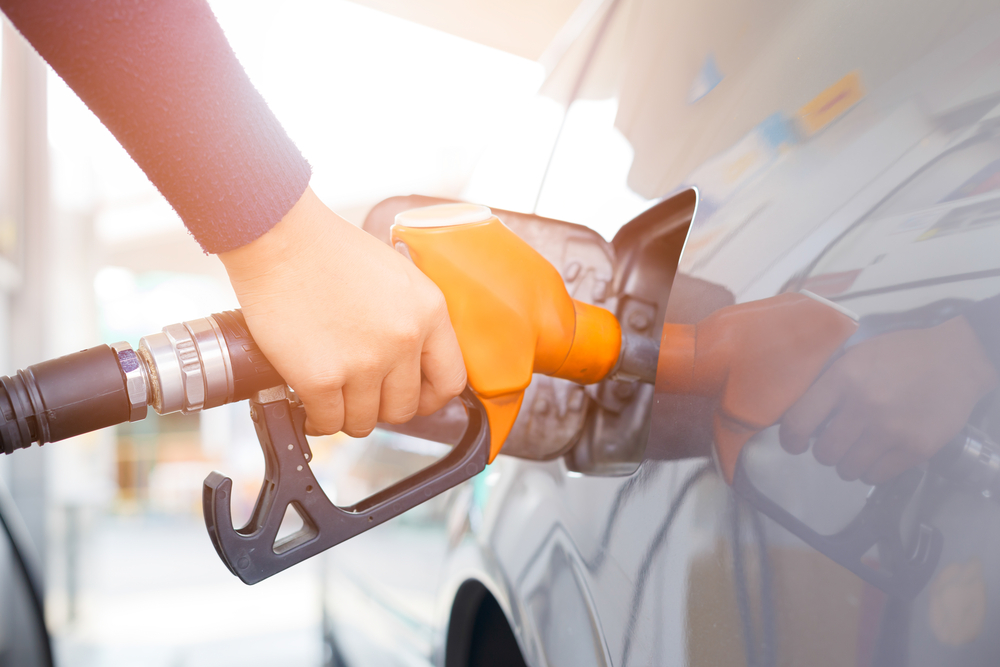Ever worried about filling your rental car with the wrong fuel in Thailand? Fuel Types In Thailand can be confusing, as there are many like Gasohol, Diesel, and LPG. This post will show you each type, what to use for your vehicle, and how to avoid costly mistakes at the petrol station.
Keep reading if you want peace of mind on the road by understanding Fuel Types In Thailand!
Common Fuel Types in Thailand
In Thailand, common fuel types include Gasohol 91 and Gasohol 95, Gasohol E20 and E85, as well as Diesel and Biodiesel. Each type has different properties suited for various vehicles.
Gasohol 91 and Gasohol 95
Gasohol 91 and Gasohol 95 are common fuels at every petrol station in Thailand. Both blend gasoline with up to 10% ethanol, making them “E fuel” types. The number shows the octane level, with Gasohol 91 at 91 and Gasohol 95 at 95.
Higher octane means better engine performance for some cars.
Most rental vehicles use one of these fuel types. Always check your vehicle’s sticker or manual before you fill up. Using the wrong type may harm the engine or void insurance cover.
“>Always match your fuel to what is listed near the fuel cap,” as many local car hire companies warn drivers.
Gasohol E20 and E85
E20 and E85 use more ethanol than Gasohol 91 or 95. E20 holds 20 percent ethanol, while E85 can go up to 85 percent. Not every engine supports these fuels. Only cars marked “E20” or “Flex Fuel” take them safely.
Many new rental cars in Thailand accept E20, but almost none support E85.
These fuels often cost less at petrol stations than standard gasoline. Using the wrong type can harm the engine and break your car hire agreement. Always check for the fuel sticker near the fuel cap before filling up at any gas station; next comes diesel options you will see often across Thailand’s roads.
Diesel and Biodiesel
Most pick-up trucks and some SUVs in Thailand use diesel. Diesel pumps in petrol stations often have green or black handles. Biodiesel, known as B7 or B10, is common too. It mixes standard diesel with plant-based fuel from palm oil.
Using the wrong type can damage your engine fast.
Check the sticker near your car’s fuel cap for “diesel” or “B7/B10”. Many rental cars run on petrol only, so always double-check before you fill up at a gas station. Now find out how to choose the right fuel for your rental car below….

How to Choose the Right Fuel for Your Rental Car
Choosing the right fuel for your rental car in Thailand is crucial. It can save you from unnecessary trouble and expenses. Here’s how to make sure you fill up with the correct type:
- Look at the fuel cap or inside the door jamb of your rental car. Manufacturers often place a sticker there, indicating the recommended fuel type.
- Check the rental agreement or ask the rental agency directly. They should provide information on what fuel to use.
- Consider the engine type of your vehicle. Diesel engines need diesel fuel, while most cars run on some form of petrol.
- Know the differences between Gasohol 91, 95, E20, and E85. These numbers refer to the ethanol content in the fuel. Choose one that matches your car’s requirements.
- If your car supports it, using E20 or E85 can be cost-effective since they are often cheaper than pure gasoline.
- For older vehicles or those without specific recommendations, stick with standard petrol options like Gasohol 91 or 95 to avoid engine damage.
- High-performance cars might need high octane fuels such as Gasohol 95 to run smoothly and efficiently.
- Be wary of filling stations that offer unusually low prices. They might sell lower quality fuel that could harm your engine.
Following these pointers will help ensure that you pick the right fuel for your rental car, keeping it running well during your travels in Thailand.
What to Do if You Use the Wrong Fuel
If you use the wrong fuel in Thailand, follow these steps:
- Stop: Turn off the engine immediately to prevent the incorrect fuel from circulating further.
- Do Not Start: Avoid starting the engine as it can cause irreversible damage.
- Inform: Contact your rental company or roadside assistance for guidance on the next steps.
- Drain Fuel Tank: If advised to do so, have a professional drain and clean the fuel tank before adding the correct fuel.
Fuel Types In Thailand in 2025
In Thailand, knowing the right fuel for your rental car is crucial to avoid problems; with various fuel types available – Gasohol 91 and 95, E20 and E85, Diesel, and Biodiesel. Choosing the correct fuel type ensures smooth driving and prevents engine damage.
Using the wrong fuel can lead to significant issues during your trip. It’s important to familiarise yourself with the appropriate options at petrol stations in Thailand. Always double-check before filling up.
Don’t let a simple mistake ruin your journey. Be mindful of the fuel requirements for your rental car to make sure you have a hassle-free experience exploring beautiful Thailand!
If you need to rent a car when visiting Thailand, SPS Car Hire is a great choice. Please click on the button below to see our rental cars. You can also click here to see our motorbike rentals.


